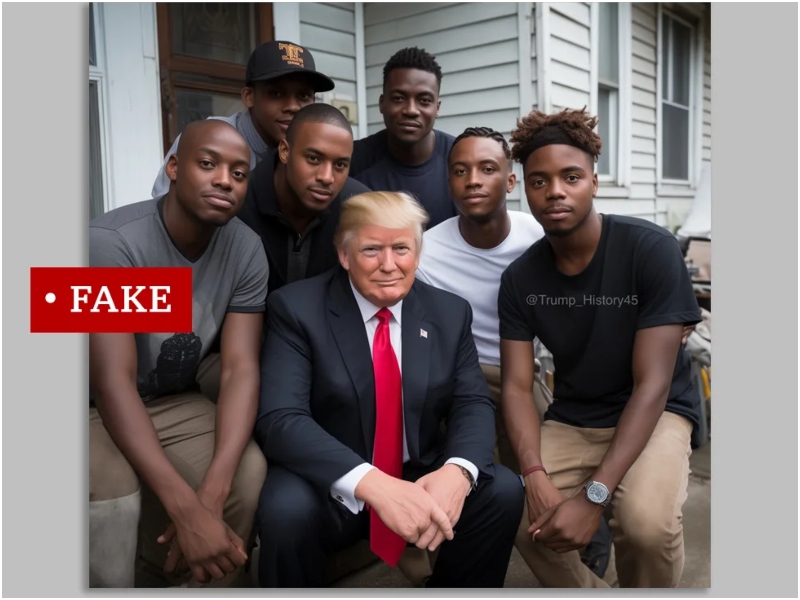As the United States gears up for another presidential election cycle, concerns over disinformation tactics targeting Black voters have surged, with the emergence of AI-generated fake images aimed at manipulating political sentiments.
Recent revelations by BBC Panorama shed light on a troubling trend where supporters of former President Donald Trump have been utilizing AI technology to create and circulate deceptive images portraying Black women as endorsing the former president.
These manipulated visuals, commonly known as deepfakes, are strategically designed to sway African American voters towards supporting conservative causes.
While there’s no direct evidence linking these images to Trump’s campaign, they represent a sophisticated attempt to exploit racial narratives for political gain.
The co-founder of Black Voters Matter, a grassroots organization advocating for Black voter empowerment, condemned the use of such deceptive tactics, labeling them as part of a broader disinformation campaign.
The creators of these fake images, speaking anonymously to the BBC, admitted to their fabrication but defended their actions as part of storytelling rather than factual representation.
Nevertheless, these images have gained traction on social media platforms, where unsuspecting users often mistake them for authentic endorsements.
One such image, featuring Trump surrounded by a group of Black women purportedly endorsing him, was shared widely by a conservative radio show host, Mark Kaye, attracting millions of views on Facebook. Despite its obvious artificial elements, the image successfully perpetuated a false narrative of Black support for Trump.

Another instance involved an AI-generated image depicting Trump interacting with Black voters on a front porch, which garnered significant attention after being reposted with a misleading caption suggesting a spontaneous encounter.
This manipulation underscores the growing sophistication of disinformation tactics employed in contemporary political discourse.
Experts warn that the proliferation of AI-generated content poses a significant challenge in combating disinformation ahead of the upcoming election.
Ben Nimmo, a former disinformation analyst at Meta, emphasized the need for heightened vigilance among social media users and platforms to prevent the unwitting dissemination of deceptive content.
Experts say the resurgence of disinformation targeting Black communities reflects a broader trend of exploiting racial tensions for political purposes.
As the election season intensifies, stakeholders must remain vigilant against such manipulative tactics to safeguard the integrity of the democratic process.
In response to these concerns, major social media companies have implemented stricter policies to detect and mitigate the spread of AI-generated content during elections.
